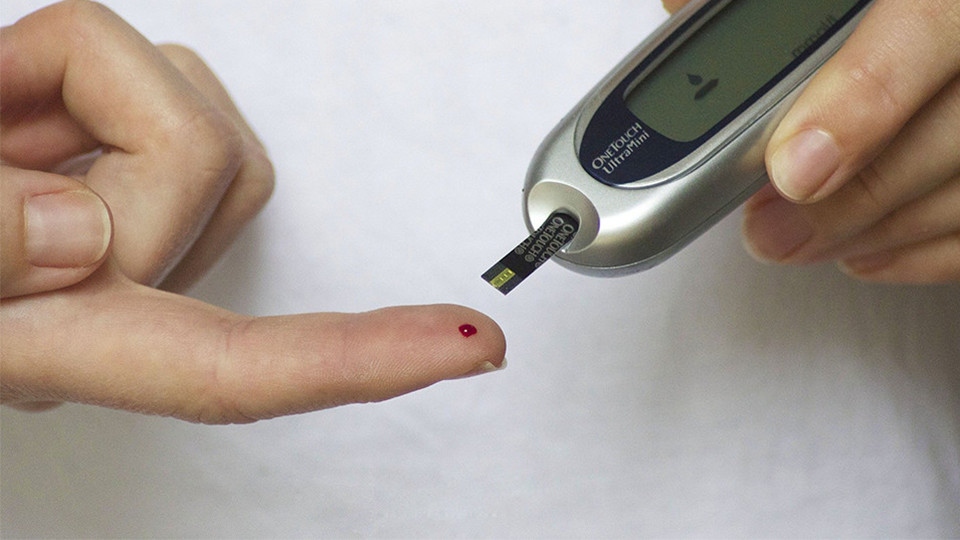Rise of diabetes-related lower limb amputations in Oldham
Date published: 27 February 2020

Across England there were 27,465 lower limb amputations from 2015 to 2018, an 18.3% increase from 2011-2014.
Oldham has seen lower limb amputations related to diabetes rise by 31% since 2011.
According to new analysis from Diabetes UK, Oldham saw 111 of the operations from 2015 to 2018 compared to 85 between 2011 to 2014.
Across the North West as a whole there were 3,848 lower limb amputations - an increase of 38.3%.
There has been a significant rise in minor lower limb amputations (43.7%), defined as below the ankle, and an increase in the number of major lower limb amputations (26.8%), defined as below the knee.
Diabetes UK says this persisting rise in diabetes-related amputations are partly due to the fact that one in six hospitals still do not have multidisciplinary specialist foot care teams (MDFT). These teams, which often include podiatrists, physicians and nurses, are integral to delivering a high quality of care and their absence may result in inconsistent access to treatment and outcomes across the nation.
For people with diabetes, problems with the feet arising from foot ulcers and infections can develop and deteriorate very quickly. That is why people with diabetes need rapid access to an MDFT when they have a foot problem. Evidence shows the longer the delay before being seen by an MDFT, the more likely it will be that foot ulcers become severe and slow to heal, increasing the risk of amputation.
People with type 1 and type 2 diabetes are at increased risk of developing problems in their feet because high blood sugar levels can damage blood vessels, affecting how blood flows to the feet and legs. Unhealed ulcers and foot infections are the leading cause of diabetes related amputations, with diabetic foot ulcers preceding more than 80% of amputations.
Diabetes is the most common cause of lower limb amputations in the UK. Someone living with diabetes is 20 times more likely to experience an amputation than someone without the condition.
Foot ulcers and amputations are also hugely costly for the NHS, with at least £1 in every £140 of NHS spending going towards foot care for people with diabetes. Foot problems can be devastating to a person’s quality of life and are often life-threatening.
Diabetes UK is urging NHS England to deliver on its commitment made in the NHS Long-Term Plan to ensure the investment promised for developing diabetes foot care, is targeted so that all hospitals can provide access to a MDFT.
Clare Howarth, Head of the North of England at Diabetes UK, said:
“Ensuring that multidisciplinary specialist foot care teams are in every single hospital across the country will not only significantly improve outcomes for people with diabetes, it will also cut down on long-term costs to the NHS.
“The differences in the standard of treatment between areas is unacceptable. An amputation, regardless of whether it’s defined as minor or major, is devastating and life-changing. A ‘minor’ amputation can still involve losing a whole foot. Especially as many diabetes amputations are avoidable through better quality care – we have to do better.
“To stop this upward trend in the number of amputations, we are urging NHS England to stay true to their commitments and ensure people with diabetes have access to the specialist care and support they need.”
It is also vital that all people living with diabetes know how to look after their feet, and check them regularly to look out for the signs of foot problems. It is crucial that people with diabetes know how important it is to seek medical attention if they spot any signs of foot problems. A matter of hours can make the difference between losing and keeping a foot.
For more information on foot care for people with diabetes, please visit: https://www.diabetes.org.uk/be-in-the-know-check-your-feet.
Do you have a story for us? Want to tell us about something going on in and around Oldham? Let us know by emailing news@oldham-chronicle.co.uk , calling our Oldham-based newsroom on 0161 633 2121 , tweeting us @oldhamchronicle or messaging us through our Facebook page. All contact will be treated in confidence.
Most Viewed News Stories
- 1Police issue appeal following fatal collision on Asda car park in Shaw
- 2Two arrested following early morning raids in Royton
- 3Plans proposed to turn former Clough Manor hotel into 'multi-service hub'
- 4Mayor's charity contribution for poorly Oldham children
- 5FCHO condemns vandals who broke into Holts Community Centre and set fire to an outbuilding




